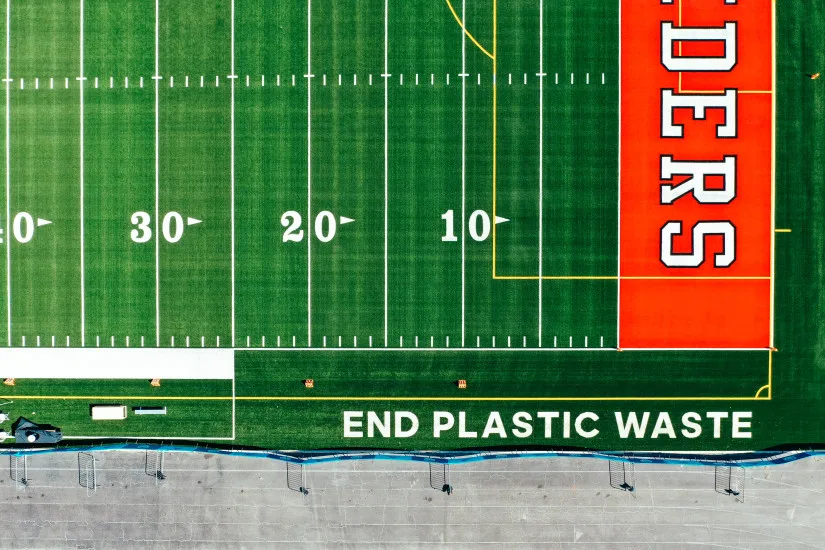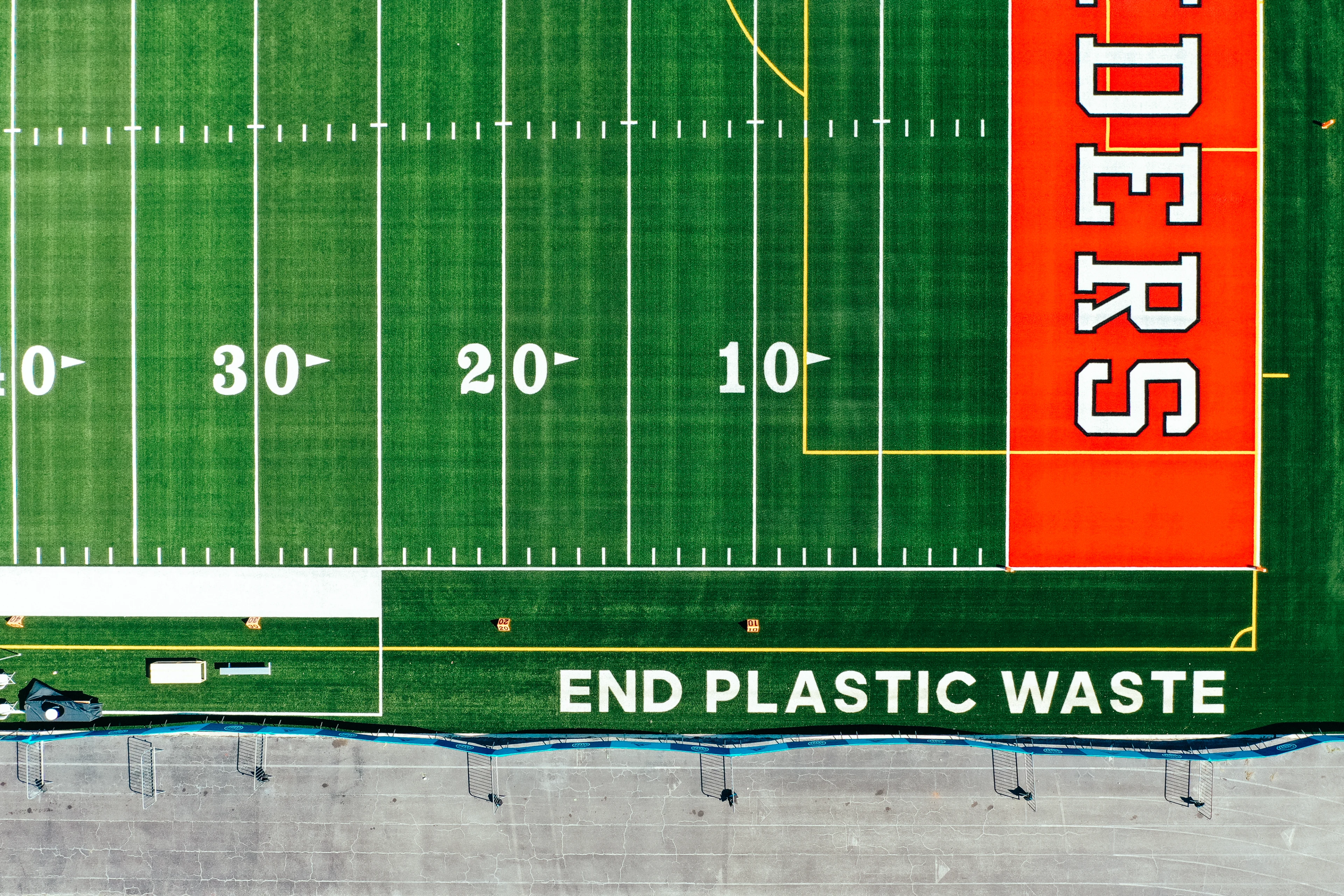
Adidas builds football field using 1.8 million recycled plastic bottles
The company is expanding the number of products that are made with ocean plastic and aims to achieve climate neutrality by 2050.
Adidas has built an entire football field for a Miami high school using 1.8 million recycled plastic bottles that were sourced from remote islands, beaches, coastal communities and shorelines.
The field has been dubbed “The 1.8” and the company’s press release states that this new sustainable field was made with Parley Ocean Plastic through an initiative that aims to reduce the amount of plastic that is in our oceans.
The recycled plastic was treated before it was transformed into infill, which looks like pellets and was designed for optimal playability, performance, and safety.

Recycled ocean plastic was used to make the infill for the football field. Credit: Adidas
Students at both Miami’s Edison High School and the wider Liberty City community will be able to use the field for a variety of activities. During the football field reveal, high school students from the Miami area debuted Adidas clothing items, such as cleats and athletic uniforms, which were also made with Parley Ocean Plastic.
This field is one of the company’s latest eco-initiatives, which are part of its commitment to end plastic waste.
“As a big company, Adidas has been a big contributor to the problem. Which is why [our] actions need to be equally as big,” the company stated in a press release.
In 2015, Adidas created its first shoe out of ocean plastic, and the company now aims to create 15 million more pairs due to the success of the material and the technology used in the design. The company recently introduced several new fabrics in January 2020 that are made out of 100 per cent recycled polyester.

The sustainable football field was donated to Miami Edison High School. Credit: Adidas
The company has a goal of achieving climate neutrality by 2050 and says that they have already begun transitioning to renewable energy sources, which is the main source of energy for their facilities in Germany.
The rate of plastic pollution is startling -- each year more than 8 million tons of plastic are dumped into the oceans and it can take hundreds of years for a single piece of plastic to biodegrade, which is why it is important for individuals and corporations to reconsider the way we use and recycle plastic.












